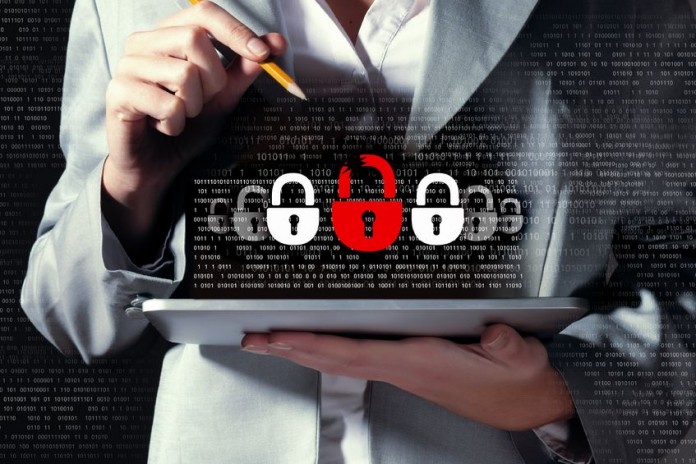Businesses of any size are vulnerable to cyber-attacks. Attacks come about from those seeking to gather financial data, passwords and personal information for illegal operations, identity theft and profits .The most successful cyber-attacks are those aimed at companies that fail to prepare for them, those that don’t acknowledge their existence and startups that don’t believe they’re targets.
What Is Cyber Crime?
Cybercrimes encompass a variety of illegal activities associated with networks and computers of all types. Anyone that uses the Internet to conduct any form of business or for personal use is at risk of a cyber-attack.
These crimes are carried out for a number of purposes including credit card theft, Internet fraud, identity theft telemarketing fraud, hate crimes and several other purposes that may be hard to imagine.
Computer users are particularly at risk for spam and phishing scams collecting personal data like Social Security numbers that may be used to acquire financial information and resources. Some of the more experienced hackers take it a step further by enacting cyber extortion or cyber terrorism.
What’s Going on with Cyber Crime Recently?
Most cybercrimes that make the news are those involving large, well-known companies, crimes against thousands of customers or those that were particularly difficult to catch and expose. However, there is no doubt; crimes involving computers and the Internet are successfully carried out daily around the world.
JP Morgan Chase is a good example of a huge company that was just recently hacked in the last year. According to the bank, data from seven million companies and 76 million customers were compromised.
Phishing attacks are another type of cybercrime, which are not publicized as much, but they continue to be a source of concern. Phishing scams collect personal information from unsuspecting email recipients asking them to verify personal or financial information.
Many individuals, small companies and home based business owners are falling victim to ransomware, which is also known as CryptoWall. Hackers infect computers with software that prevents the computer from functioning until a ransom is paid.
Who’s Affected the Most by Cyber Crime?
It is difficult to say which types of businesses may be more affected by cybercrimes. You might assume that larger businesses are better targets because their customer databases are so large; however, they spend great amounts of money to protect their networks, which make it more difficult for hackers to breach.
Companies that store large amounts of financial data online would draw plenty of attention. However, they almost always have large IT departments, specialists and have taken extreme precautions to protect data. Nevertheless, it still doesn’t make them less impenetrable or less of a target.
You wouldn’t think startups would attract much attention since their client bases are so small. Most people assume that startups are safe from cyber threats but this couldn’t be further from the truth.
Why Startups Are More Vulnerable
Although, large companies and chains make the papers when they’re breached, the majority of breaches occur at small companies. According to a large insurance company, 62 percent of cyber breaches occur at small or mid-sized companies. This includes startups.
It would seem unlikely that startups would be such huge targets, but in reality, startups are very high on the list for cyber hackers. Startups are vulnerable to hackers because:,.
1. Small startups don’t believe they are targets and ignore the risks associated with networks and Internet activity.
2. Many startups just don’t have the money to take steps to provide extra security measures to protect their company and customers from hackers.
3. Some small companies are in denial that anyone would be interested in the data they keep online.
4. Companies often fail to train employees on the secure methods for handling customer data and consequently make the company vulnerable to hackers.
5. Many companies fail to understand how they can be hacked and don’t attempt to take any precautions.
6. Some startups trust the small number of employees they have and fail to believe that anyone on the inside could be influenced to steal precious data or customer information.
In essence, startups can be more vulnerable than the majority of other companies because of their lack of education, refusal to safeguard information or unwillingness to take precautions of any kind.
Why Startups Need Insurance Against Cyber Attacks
Too many new companies make the assumption that their general liability coverage on their business policy covers them for cyber-attacks. In most cases, standard business insurance does not cover activities and risks associated with cyber-attacks. Startups need to purchase a cyber-liability policy.
Regardless of where you host your website or if you use storage in a cloud, you are still legally responsible if data is breached.
Without cyber insurance, the majority of small businesses that are breached by cyber activities never recover from the damages inflicted on their name or the financial damages incurred from resolving lawsuits and customer issues and complaints.
Types of Cyber Liability Insurance
Purchasing cyber liability insurance can help the small business to survive the risks associated with cyber-criminal activity.
First-Party Coverage
This coverage helps to protect businesses from damages related to detecting a breach, ransomware attacks, hacking, data loss and intellectual property theft.
Third-Party Coverage
Companies may benefit from this coverage to reduce the costs of lawsuits, legal expenses, credit monitoring and the cost of notifying customers about the breach.
In essence, no business is totally safe from cyber threats or attacks. However, taking security precautions and pursuing cyber liability insurance could help to provide some protection and mitigate the costs.
Find a Home-Based Business to Start-Up >>> Hundreds of Business Listings.

















































